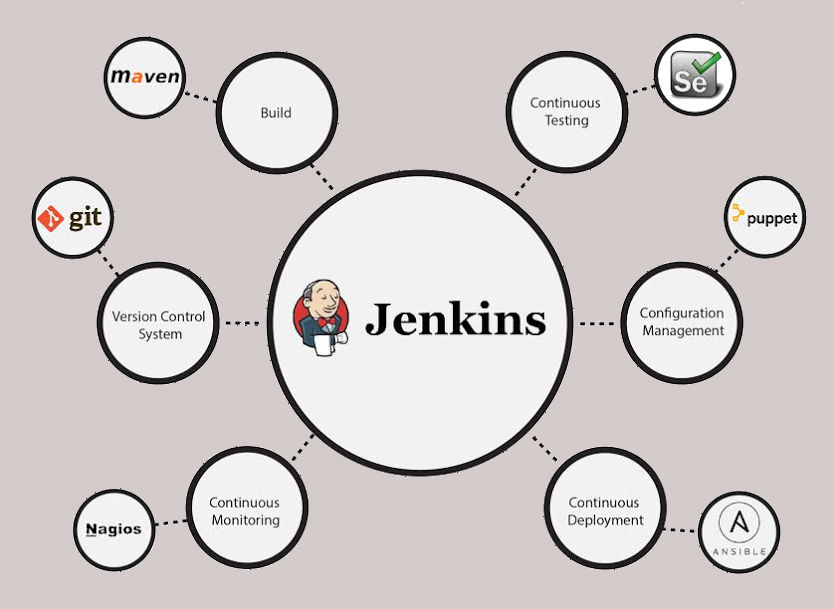





In Today’s competitive Business world, the software development process requires immediate feedback, quick iterations and frequent releases at previous unseen velocity. Software development process success depends on supporting infrastructure with right tools. As more projects are moving towards agile, test automation becomes indispensable to reduce the testing hours without impacting the quality. Automation with continuous integration evolves a major role for quality delivery in less time with less cost. Let us go through continuous integration works with Automation Testing.
The objective of continuous integration to run “Integration tests” at every code changes and automatically deploy every change that passes the test. Continuous Integration (CI) is a development practice where developers integrate code into a shared repository frequently, preferably several times a day. Each integration can then be verified by an automated build and automated tests.
Jenkins is a self-contained, open source automation server which can be used to automate all sorts of tasks related to building, testing, and deploying software.
• Jenkins open source continuous integration tool.
• Jenkins provides continuous integration services for software development
• With Jenkins, organizations can easily accelerate the software development process through automation
• Easily Configurable. Jenkins can be easily modified and extended. It deploys code instantly, generates test reports. Jenkins can be configured according to the requirements for continuous integration and continuous delivery.

Test automation is use of a program to control the execution of tests, comparison of actual outcomes to predicted outcomes, setting up of test pre-conditions and other test control and test reporting functions.
Automated testing can be a valuable tool to gauge and improve the quality of any software product. The following tools are available in the market.

Following are some of the key features of Jenkins automated testing which makes the life of an automation tester using automation testing tools like Selenium, much easier.
Jenkins automated testing comes with an excellent functionality that allows the testers to schedule test automation cases and run them as per their convenience. This definitely saves the testers’ time and effort significantly.
Jenkins automation displays test automation result trends on the project home page. The user can clearly see how the Jenkins automation tests have been faring over time—test failures from previous builds will also appear as red in the Test Result Trend graph. This provides the user with insights to take appropriate actions.
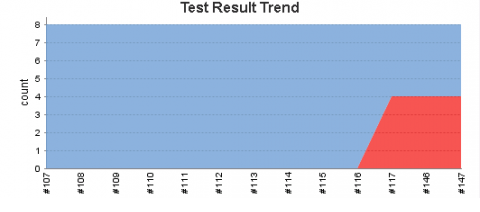
One of the most critical tasks of a tester is to report on the test results. Not just the test failures, but also the number of tests that were executed, how long did it take to execute, and so on. Jenkins provides a summary of the test results, organized by high-level packages rather than modules to simplify the process.
When a test automation fails, the tester would definitely want to know why. With Jenkins automated testing you can access the details of a particular test failure by just single click on the corresponding link. It will display all the complex details, including the error message and the stack trace, as well as a reminder of how long the test has been failing. This is an indicator of either a tricky technical problem in the automated test cases that might need attention, or a complacent attitude to failed builds which is more serious and definitely should be investigated closely.
Jenkins automation can easily tell us how long the tests have been taking to run over time. Jenkins provides a graph along the lines of the one in the Figure,
Now, tests are not the only things that happen in a build job, but if we have too many tests to worry about, they will take a large proportion of the time. Hence, this graph is a great way to see how well the tests are performing without consuming too much time.
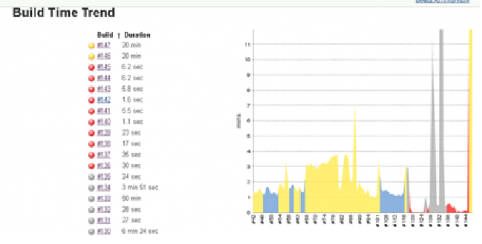
Out of the box, Jenkins provides support for email notifications. This can be activated by ticking the “E-mail Notification” checkbox in the ‘Post-build Actions’ and just entering the email addresses of the team members who will need to know when the test suits have been completed along with the test results and the screenshots of the failed test cases.
Jenkins Use headless browser to run the selenium tests directly on Jenkins workstation Also it used to schedule test to run at specific time and automatically trigger the Test Results after the execution of test suits
Integration of Jenkins with Selenium:
Follow the below steps:
Scheduling builds(Selenium Tests) is one of the important features of Jenkins where it automatically triggers the build, based on defined criteria. Jenkins provides multiple ways to trigger the build process under the Build Trigger configuration.
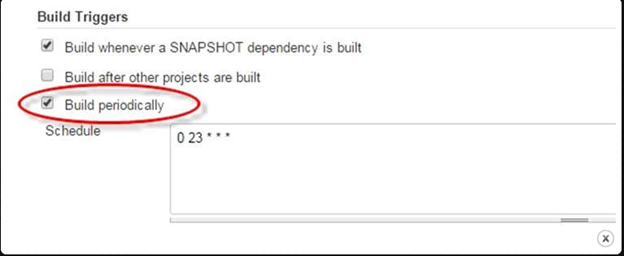
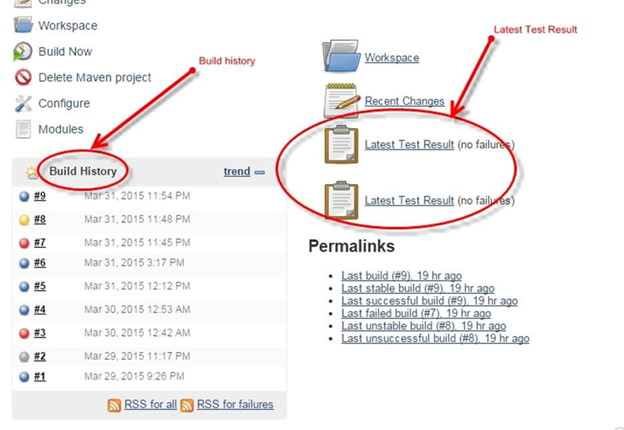
Automation test plays a key role with continuous integration. An Automation Tools required to be fast and should cover all functionality. Continuous integration should run the Automation test and after each commit and send results to developers.
RAFT is Re-Usable Automation Framework which automates and enhances your testing process by decreasing the cost and man-hours for testing your applications. Our RAFT is a ready to use automation framework which enables you to test the Web and Mobile applications.
RAFT Engine is the Heart Our RAFT framework which consists of entire logic. It is created in such a way to handle the three types of applications such windows , IOS and Android.
A better automation tool should satisfy the following factors.
One of the key benefits of integrating Jenkins with RAFT is to detect errors quickly and efficiently.
Jenkins picks the codes and initiate the build and run the test automatically. In RAFT, we have integrated Jenkins to achieve the following operations:
Author: Aejaz sherief | Posted On: 3rd December 2017 | Category: Article
© 2024 Novature Tech Pvt Ltd. All Rights Reserved.